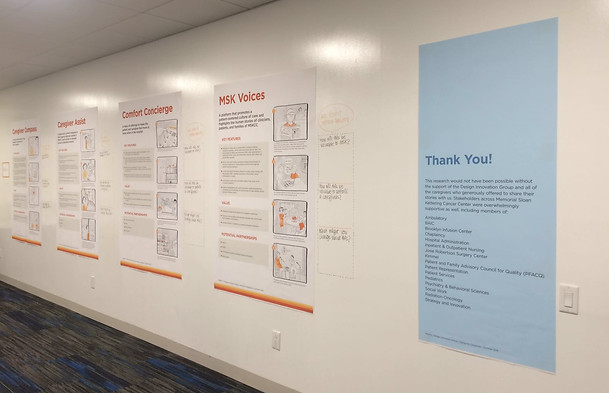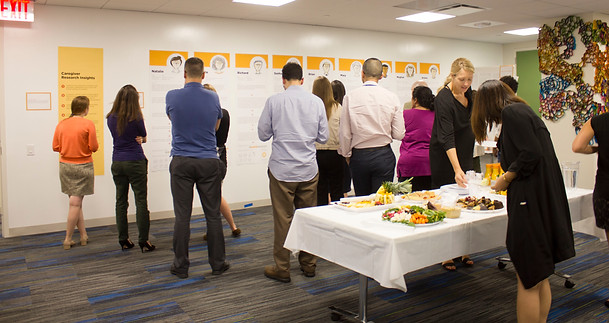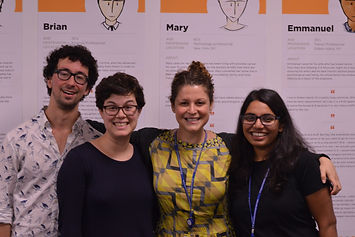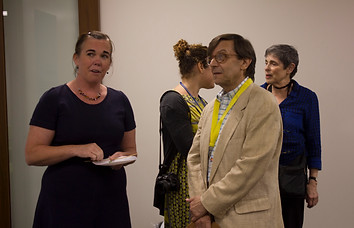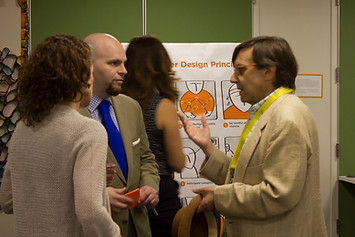
Caring for
Cancer Caregivers
BACKGROUND
As cancer care shifts from an inpatient to an outpatient treatment model, the role and responsibility of the caregiver is changing significantly. The increased burden transferred from the clinical care team to the caregiver is a recent phenomenon, one that may have wide ranging implications for the patient and their support system.
The Caring for Caregivers research was completed by an interdisciplinary team of graduate student interns in the MSKCC Design Innovation Group during the summer of 2016. We collaborated with different groups throughout the institution including colleagues, patients and caregivers, to problem solve, find opportunities, design new solutions, and ultimately improve the patient experience at MSK.
SPONSOR
Memorial Sloan Kettering Cancer Center (MSKCC), New York
TEAM
Asmina Shaikh, Noah Litvin, Jenni Schneiderman, Sophie Riendau
How might MSKCC better understand and support the cancer caregiver’s experience?
RESEARCH PROCESS
Survey Design for a qualitative survey for cancer caregivers. The survey was designed for caregivers to fill out in the hospital waiting room. The design helped caregivers reflect on their surroundings and their experience as a whole as well as included an outreach piece for the recruitment of participants in the research.
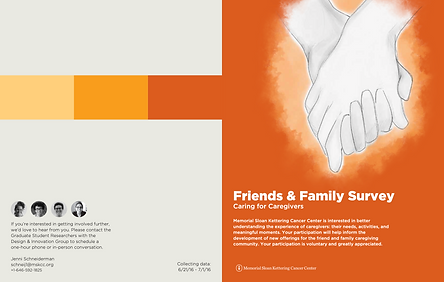
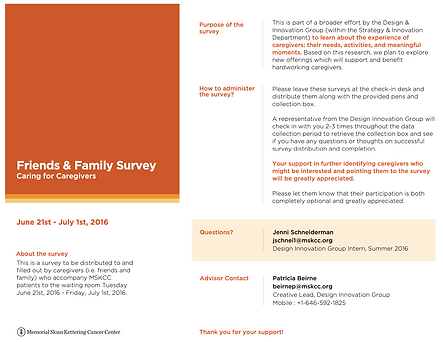
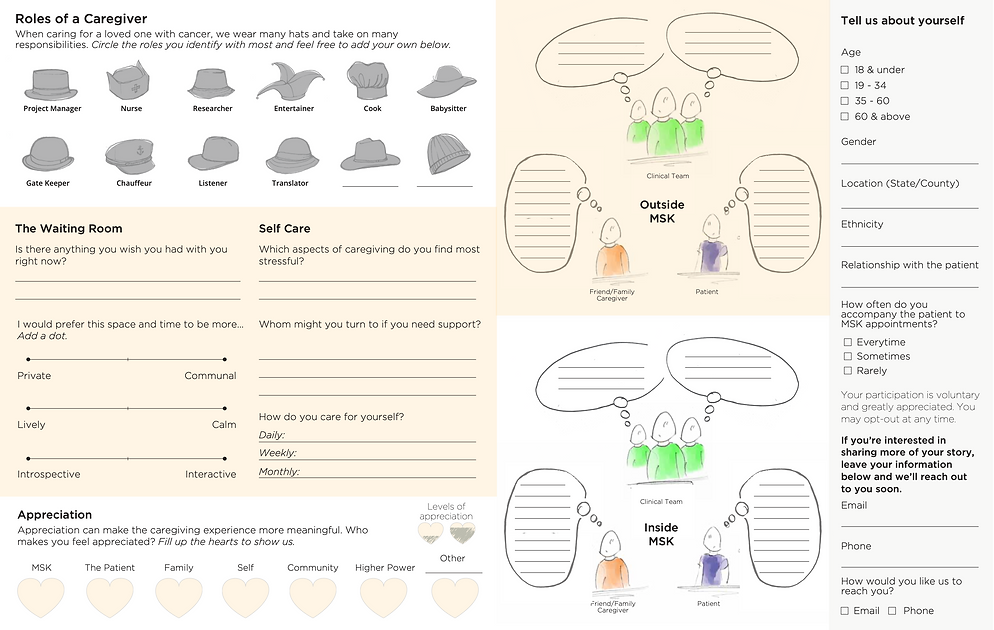
Live visualization of information during discussions & interviews to capture information visually & ease sense making.
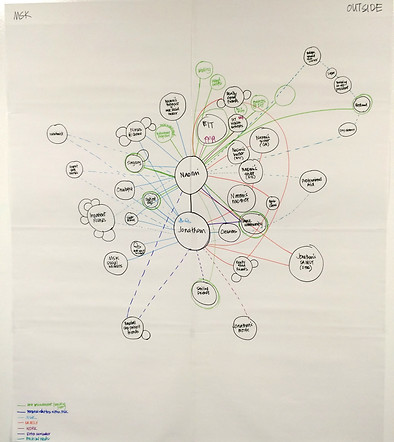
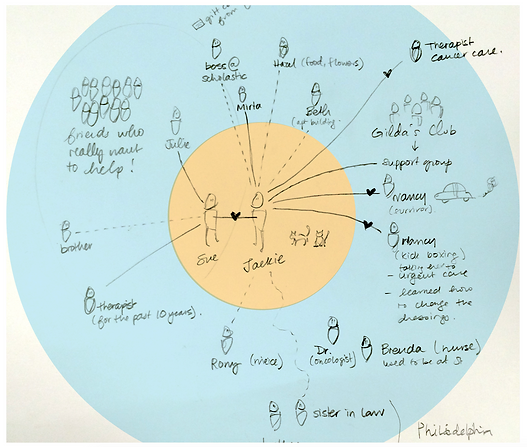
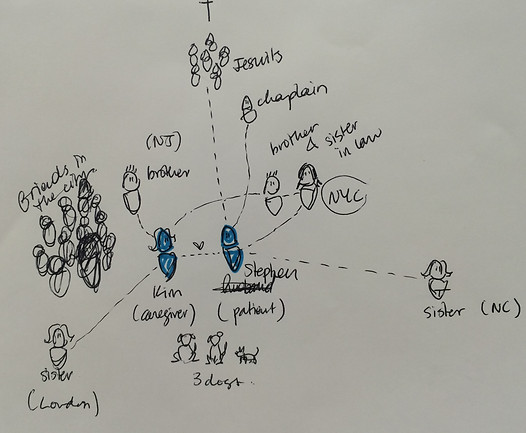
Design and production of stimulus cards and activities to aid the research process.
1. Hats of a caregiver - card exercise
2. Support network maps
Design and production of stimulus cards and activities to aid the research process.
1. Hats of a caregiver - card exercise
2. Support network maps
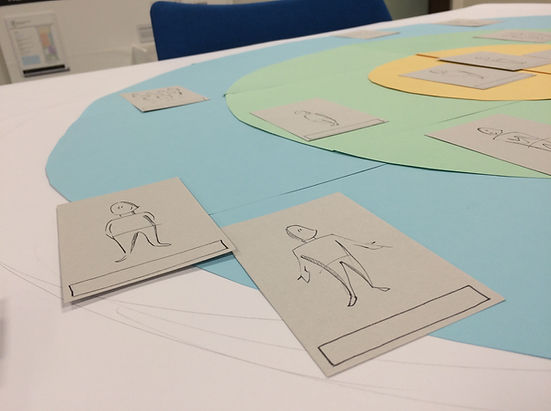
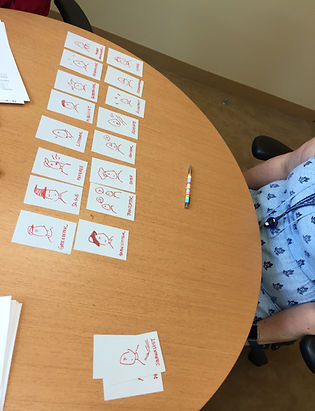
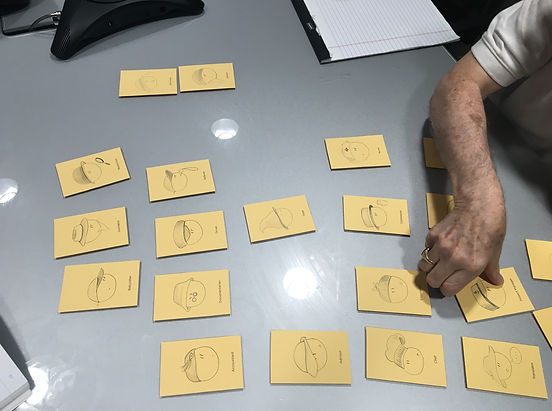
ANALYSIS & SYNTHESIS
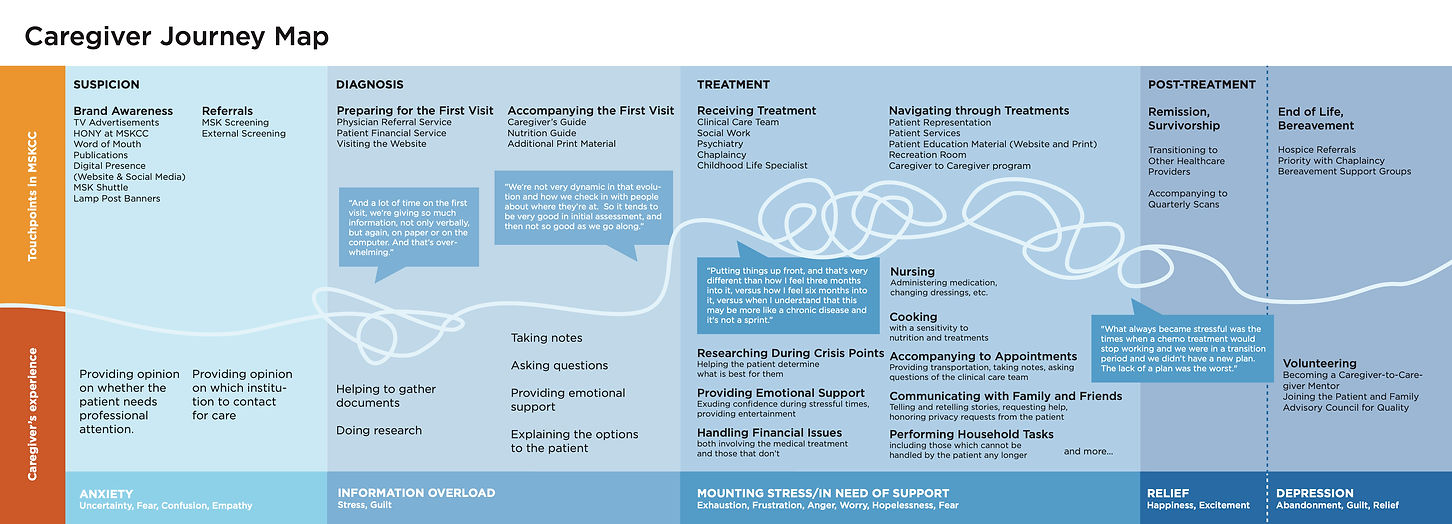
DESIGN PRINCIPLES
CO-DESIGN SESSIONS
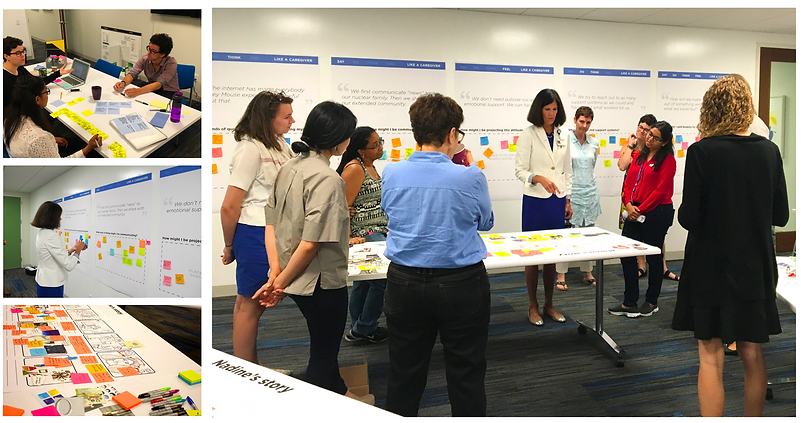
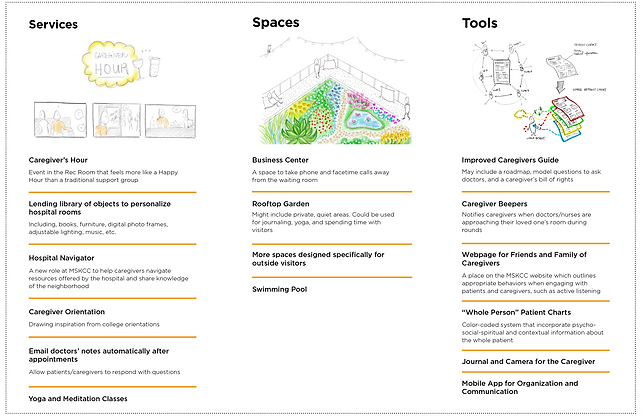
CONCEPT POSTERS
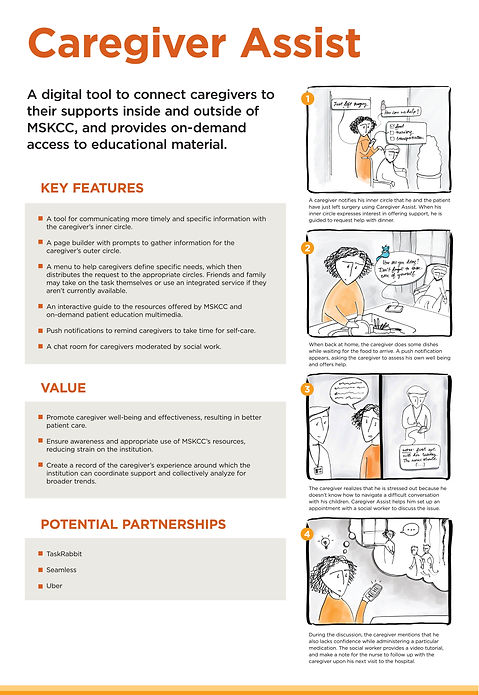
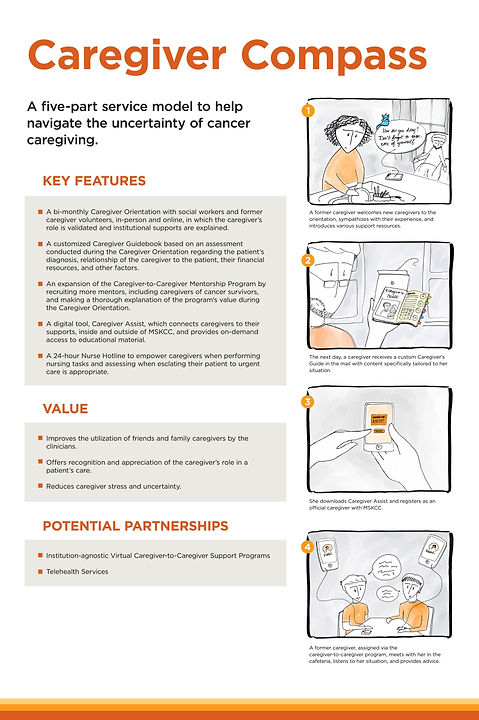
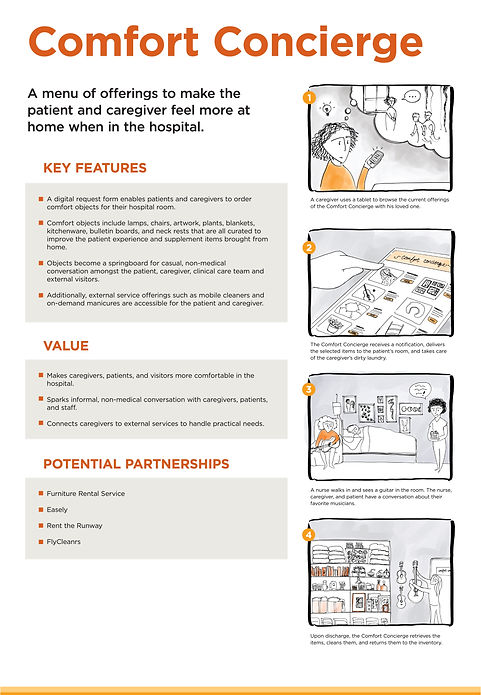
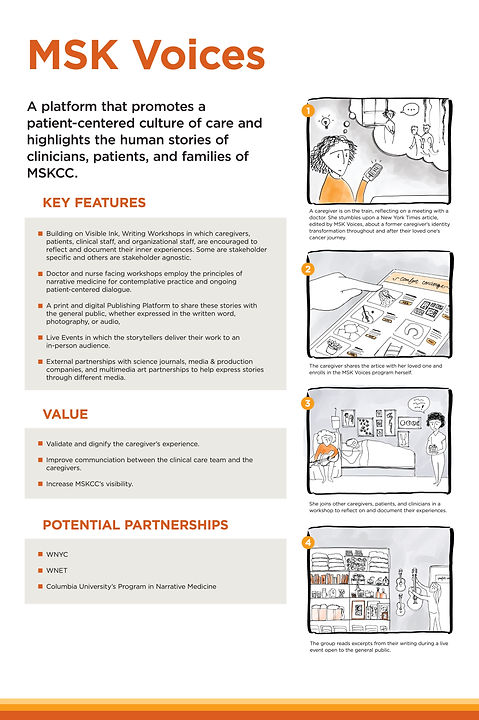
STRATEGIC VISION
A series of strategic philosophical statements to guide how MSK thinks about the caregiver moving forward.
1. From ancillary to an integral member of the holistic care team.
2. From silo-ed programming to a cohesive, designed experience
3. From reactive support to preventive tools & navigation oriented support
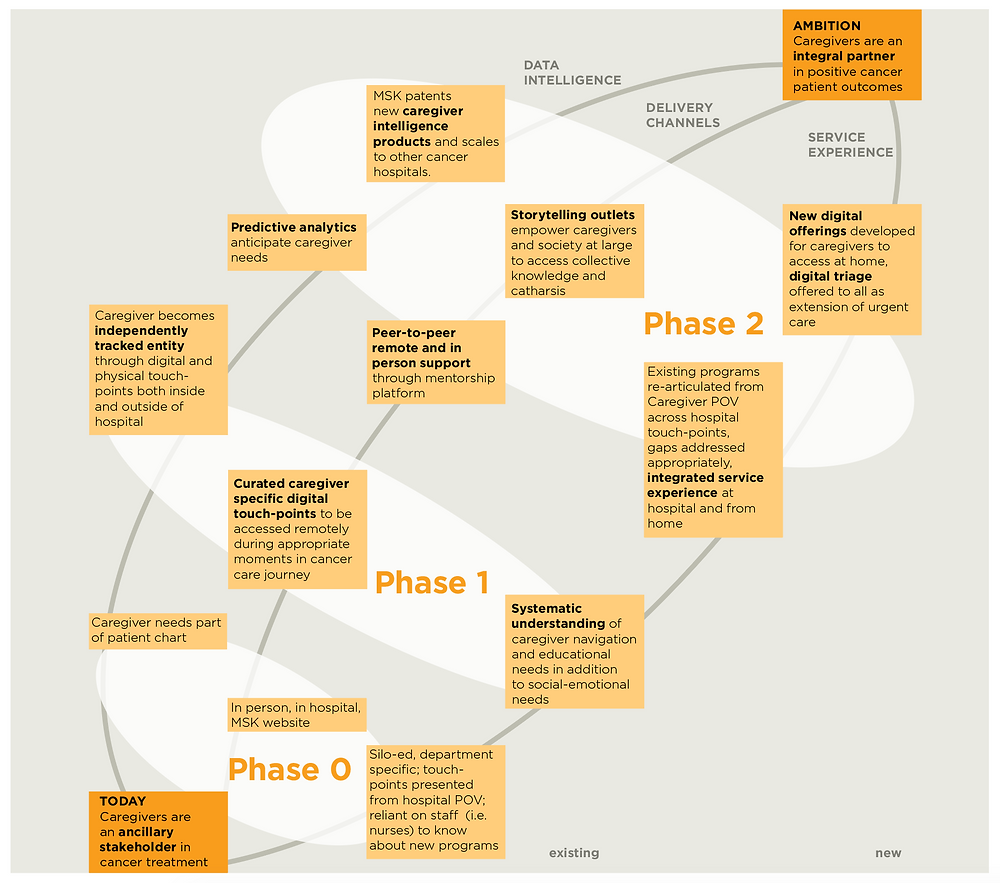
FINAL SHARE OUT
Outcomes of this project include a range of things such as an exhibit that visualized the analysis of stories of the caregivers that contributed to the research as well as 4 core concepts, a presentation to a leadership panel at MSKCC comprising of the Director of Palliative Care, Strategy & Innovation & Social Work & a dense report that documented the findings and concepts generated over the course of the project.
